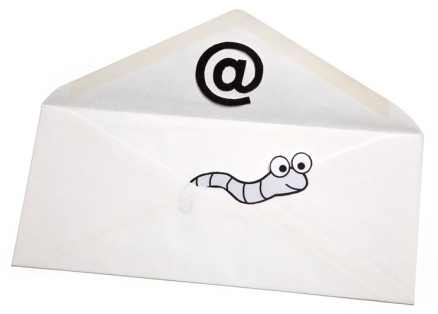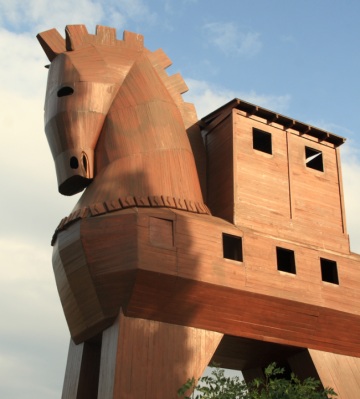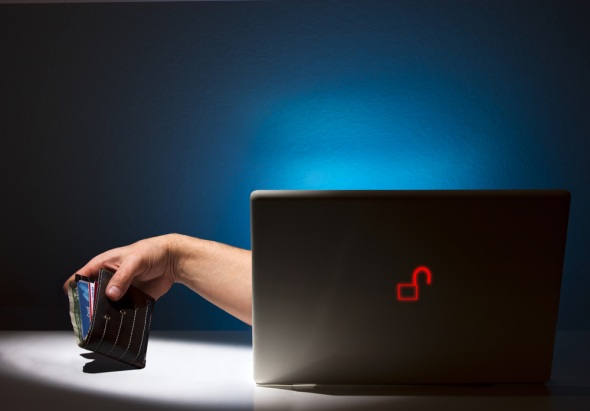Differentiate types of malware
TipsMake.com - Some people have the habit of calling all malicious software (malicious software) under a common name is computer virus, but this is completely incorrect. Viruses, worms and trojans are different types of malicious software with different behaviors. In particular, they spread themselves in many ways.
Malicious software is often called 'malware'. Fortunately, anti-virus programs do not care about the name of the malicious software, they also remove worms, trojans and other types of malware.
Viruses
A computer virus infects many different files, similar to the biological virus that infects living cells. When running a virus-infected file, the virus will infect other files in the system. In most cases, it parasites the .exe file and will work when these files are executed.

Viruses are also harmful to the system. They can replace the entire program file instead of just signing into the program. In addition, the virus can delete files and publicize its presence, take up system memory and cause problems.
Viruses are dangerous in the way they spread. When a legitimate file is transmitted between systems, the virus follows it.
Worm
Worm is a standalone program that does not require user intervention to spread it. The worm does not infect system files, but instead copies itself and spreads.
Some simple worms like Mydoom, send emails containing their copies to all addresses in the address book on the computer. But, there are types that are very dangerous and spread very quickly like Blaster and Sasser also exploit vulnerabilities in network services. Instead of sending mail, they go through the network and infect systems that do not activate the firewall.

The worm spreads over the network causing a large amount of traffic to flow across the network, thus slowing the network. Once the worm is in the system, it can perform similar operations to the virus.
Trojan
Trojans are named after the legendary trojan horse. To conquer Troy, the Greeks created a wooden horse and gave it to the people of Troy as a gift. Trooper Troy accepted and brought the gift into the city. When night falls, the Greek soldiers come out of the wooden horse and open the gate to the soldiers outside and Troy collapses.
A trojan is similar. It disguises under legitimate software or an unauthorized crack for a legitimate program. But instead, it opens a backdoor on the system.

Trojan writers can take advantage of the back door to make your system a member of a botnet, using your Internet connection to perform illegal activities, download other malware programs. or anything else they want.
Anyway, trojans don't automatically spread but are spread manually by users.
Other threats
There are not only three types of malware here. There are some other popular types such as:
- Spyware : Spyware secretly monitors users, monitors keystrokes from the keyboard to steal credit card information and online transaction passwords or monitor users' browsing activity and send it over the Internet. Spyware is often designed to get money for employers. Some antivirus programs do not detect and remove this type of software but Windows Defender integrated in Windows 7 is possible.

- Scareware : also known as crimeware, often appears as a fake warning on a website. If you believe the warning and download the fake antivirus program, it will announce that there are many viruses in the system. The program requires a credit card number, asking for costs before fixing the system. Scareware keeps the system hostage until you pay it to remove it.
Keep your operating system and software up to date and run an antivirus program to protect yourself from these dangers.